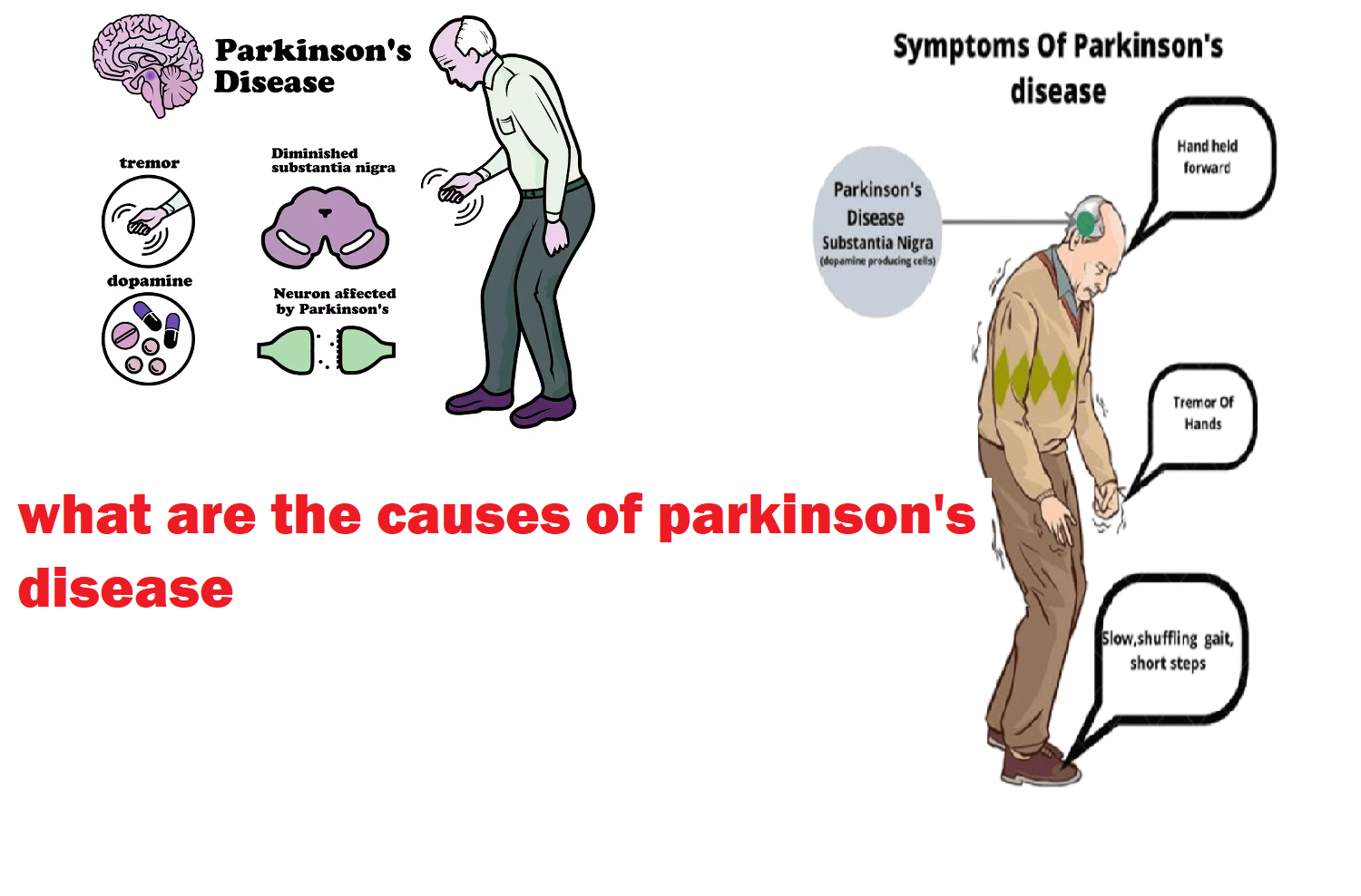Parkinson's disease is a progressive neurological disorder that affects movement. It is characterized by the degeneration of dopamine-producing neurons in the brain. Understanding the various factors that contribute to Parkinson's disease is crucial for early detection and management. This article addresses key questions surrounding the causes of Parkinson's disease.
What is the Main Cause of Parkinson's Disease?
The exact cause of Parkinson's disease remains unknown. However, it is believed to result from a combination of genetic and environmental factors. Aging is the most significant risk factor, as the majority of cases occur in individuals over the age of 60. Additionally, certain genetic mutations have been linked to the disease, suggesting that heredity plays a role in its development.What Causes Parkinson's Disease Stages?
Parkinson's disease progresses in stages, each characterized by increasing severity of symptoms. The progression is influenced by several factors, including the individual's overall health, response to treatment, and lifestyle choices. The five stages of Parkinson's disease range from mild symptoms, such as tremors, to severe disability, where individuals may lose the ability to walk or care for themselves.What Kind of Toxins Cause Parkinson's Disease?
Exposure to certain environmental toxins has been associated with an increased risk of developing Parkinson's disease. Pesticides, heavy metals, and other industrial chemicals may contribute to neuron damage. Research indicates that prolonged exposure to these substances may trigger the onset of symptoms in genetically susceptible individuals.What Causes Early Parkinson's Disease?
Early onset Parkinson's disease, which affects individuals under the age of 50, may have a stronger genetic component. Mutations in genes such as SNCA, LRRK2, and PARK7 have been implicated in early-onset cases. Environmental factors may also play a role, but more research is needed to understand these mechanisms fully.How Did Parkinson's Start?
Parkinson's disease was first described by Dr. James Parkinson in 1817. It has since been studied extensively, leading to a better understanding of its symptoms and potential causes. The condition starts with the degeneration of dopamine-producing neurons in a part of the brain called the substantia nigra, leading to movement-related symptoms.Can Stress Cause Parkinson's Disease?
While stress alone is not a direct cause of Parkinson's disease, chronic stress may exacerbate symptoms and contribute to overall neurological decline. Stress can impact brain health and may influence the progression of neurodegenerative diseases.How to Avoid Parkinson's Disease?
While there is no guaranteed way to prevent Parkinson's disease, certain lifestyle choices may reduce risk. Regular physical exercise, a balanced diet rich in antioxidants, and avoiding exposure to known toxins can promote overall brain health and potentially delay the onset of symptoms.What is Most Likely to Cause Parkinson's?
The most significant risk factors for developing Parkinson's disease include advanced age, family history of the disease, and exposure to environmental toxins. Understanding these factors can aid in identifying individuals at higher risk.What Virus Causes Parkinson's?
Research is ongoing regarding the relationship between viral infections and Parkinson's disease. Some studies have suggested that viruses, such as the influenza virus or certain forms of encephalitis, may be linked to the development of Parkinson's in susceptible individuals.Who is at Risk for Parkinson's?
Individuals over the age of 60, men, and those with a family history of the disease are at greater risk for developing Parkinson's. Other factors, such as head injuries and exposure to toxins, may also increase risk.Is Parkinson's Painful?
Parkinson's disease can be associated with various forms of pain, including musculoskeletal pain, dystonic pain, and neuropathic pain. Patients may experience discomfort as a direct result of the disease or as a side effect of treatments.What Lifestyle Causes Parkinson's?
Certain lifestyle factors may contribute to an increased risk of Parkinson's disease. These include a sedentary lifestyle, poor diet, and high levels of exposure to environmental toxins. Engaging in regular physical activity and maintaining a healthy diet may mitigate some of these risks.What is the Root Cause of Parkinson's?
The root cause of Parkinson's disease is multifaceted, involving a combination of genetic predispositions and environmental influences that lead to the degeneration of dopamine-producing neurons in the brain.What Are the First Warning Signs of Parkinson's?
Early warning signs of Parkinson's disease can include tremors, stiffness, slowness of movement, and changes in posture or balance. A subtle decrease in facial expressiveness, known as "masked face," may also be an early indicator.Is Parkinson's Curable?
Currently, there is no cure for Parkinson's disease. However, treatment options, including medications and surgical interventions, can help manage symptoms and improve the quality of life for those affected.Is Parkinson's Genetic?
While most cases of Parkinson's disease are sporadic, certain genetic mutations are linked to familial forms of the disease. Individuals with a family history of Parkinson's may have a higher risk of developing the condition.What Chemical Deficiency Causes Parkinson's?
The primary chemical deficiency in Parkinson's disease is a lack of dopamine, a neurotransmitter crucial for coordinating movement. This deficiency results from the degeneration of dopamine-producing neurons in the substantia nigra.What is the Scientific Cause of Parkinson's Disease?
Scientifically, Parkinson's disease is characterized by the loss of dopaminergic neurons due to a combination of genetic factors, environmental exposures, and age-related neurodegeneration.How to Prevent Parkinson's?
Preventative measures may include maintaining a healthy lifestyle, engaging in regular exercise, consuming a balanced diet, and reducing exposure to harmful chemicals. Staying mentally active and socially engaged may also contribute to brain health.How Can Parkinson's Start?
Parkinson's disease typically starts gradually, with subtle symptoms such as a slight tremor or stiffness. The exact mechanisms that trigger the onset of the disease are still being studied.How to Test for Parkinson's at Home?
While a definitive diagnosis of Parkinson's disease should be made by a healthcare professional, individuals can look for common signs, such as tremors at rest, rigidity, and difficulty with balance. However, these should be evaluated by a neurologist for a proper diagnosis.What is End Stage Parkinson's?
End-stage Parkinson's disease is characterized by severe symptoms, including significant disability, inability to perform daily activities, and a marked decline in overall health. Patients may experience complications such as swallowing difficulties, infections, and increased risk of falls.What is Stage 1 of Parkinson's Disease?
Stage 1 of Parkinson's disease is the mildest stage, where symptoms are typically subtle and may only affect one side of the body. Patients may experience slight tremors, changes in posture, and mild stiffness.Does Parkinson's Affect Memory?
While Parkinson's disease primarily affects movement, it can also impact cognitive function and memory, particularly in later stages. Some individuals may develop Parkinson's disease dementia.What Increases Parkinson's?
Factors that may increase the risk of developing Parkinson's disease include age, genetics, environmental toxin exposure, and a history of head trauma.What is the Finger Test for Parkinson's?
The finger test is a simple assessment where individuals are asked to tap their fingers rapidly. Difficulty performing this task can indicate motor impairment associated with Parkinson's disease.What Causes Sudden Parkinson's?
Sudden onset of Parkinson's symptoms may occur due to a variety of factors, including stress, illness, or exposure to certain toxins. A sudden decline in motor function may require immediate medical evaluation.What Deficiency Causes Parkinson's?
As mentioned earlier, the primary deficiency in Parkinson's disease is dopamine. Other deficiencies, such as vitamin D, may also play a role in overall neurological health.What Food is Not Good for Parkinson's?
Certain foods high in saturated fats, sugars, and processed ingredients may not be beneficial for individuals with Parkinson's disease. A diet rich in fruits, vegetables, whole grains, and healthy fats is generally recommended.What is the Super Food for Parkinson's Disease?
Foods rich in antioxidants, such as berries, green leafy vegetables, and fatty fish, are considered beneficial for brain health. Omega-3 fatty acids, found in fish and flaxseeds, may also support neurological function.What is the Major Cause of Parkinson's Disease?
The major cause of Parkinson's disease is multifactorial, involving both genetic and environmental components. The interplay between these factors leads to the progressive loss of dopamine-producing neurons in the brain.Can Parkinson's Disease Be Cured?
Currently, there is no cure for Parkinson's disease. Research is ongoing to find effective treatments and potential cures, but management of symptoms is the primary focus at this time.What Are the Warning Signs of Parkinson's Disease?
Warning signs of Parkinson's disease include tremors, rigidity, bradykinesia (slowness of movement), changes in speech and handwriting, and difficulties with balance and coordination.Is End Stage Parkinson's Painful?
End-stage Parkinson's can be painful due to various factors, including muscle rigidity, dystonia, and complications from immobility. Effective pain management is an essential component of care.What Are the 5 Stages of Parkinson's?
The five stages of Parkinson's disease are:- Stage 1: Mild symptoms, affecting one side of the body.
- Stage 2: Symptoms become bilateral, affecting daily activities.
- Stage 3: Increased balance issues and significant impairment in daily life.
- Stage 4: Severe symptoms, with the individual being unable to live independently.
- Stage 5: End-stage, requiring full-time care.
How Long Can You Live with Parkinson's?
Life expectancy with Parkinson's disease varies, with many individuals living for 10 to 20 years after diagnosis. Factors such as age, overall health, and access to care play a significant role.What is the Latest Cure for Parkinson's Disease?
While there is no definitive cure for Parkinson's disease, research into gene therapy, stem cell therapy, and new medications.Read more :
1= https://checkwebsitedr.com/blogs/what-size-is-a-king-bed-and-a-queen-bed/
2= https://checkwebsitedr.com/blogs/what-are-the-common-symptoms-of-e-coli/
3= https://checkwebsitedr.com/blogs/what-are-the-causes-of-parkinsons-disease/


